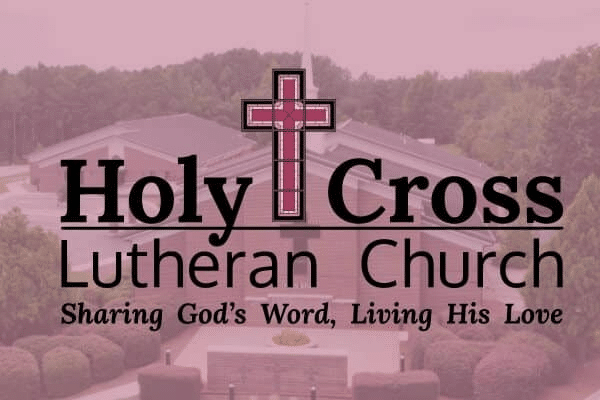
Matthew 2:1-12
January 5, 2025
This is a picture taken of a street in a city two days before Christmas, but this is a picture taken of a street in a city two days after Christmas. It is not wrong to take down your Christmas decorations two days after Christmas. After all, people have their own decorating schedules for Christmas and their own timetables for packing their lights and decorations away. In fact, many radio stations stopped playing Christmas music on December 26. While I wish they would have continued playing Christmas music until today, I’m happy they were willing to play Christmas music during most of December that talked about the birth of Jesus. Several stores took their Christmas decorations down by January 1, but at least they put up decorations. Some people do not put up a tree at all, and there’s nothing wrong with that; but I think it’s sad if people take down all of their Christmas decorations by December 27, having just heard the Good News of Jesus’ birth two days earlier.
Today, 11 days after the birth of Jesus, we take a moment to remember the last piece of the Christmas story – the coming of the Magi or wise men, who came to worship Jesus, the newborn King. While the story is probably somewhat familiar to us, our world has a tendency to mix up some of the facts of this story with the events that took place at Christmas. For example, many of our manger scenes show the wise men, with their gifts, worshipping the baby Jesus at the stable, along with the shepherds, on that first Christmas night. And that’s not a bad thing, but the Bible tells us that when the wise men found Jesus, He had already been circumcised and presented in the temple; instead of being in a stable. Verse 11 of our Gospel lesson for today tells us that the wise men found Mary, Joseph, and baby Jesus in a house; which Joseph had probably found for them to stay in until the time came for them to flee to Egypt. Therefore, having traveled a good distance just to get to Bethlehem, the wise men probably arrived several months after Jesus was born.
In fact, we don’t even know how many of them were at the house. We often assume there were 3 since they brought 3 different gifts – gold, frankincense, and myrrh; and many of our Christmas songs tell us that there were 3 (we’ll even sing one of those great songs this morning, which clearly tells the story we celebrate today), but the Bible never tells us how many wise men came to worship Jesus. Plus, how did the wise men know that this special star they saw in the east signified that the Savior of the world, the King of Kings, had been born? After all, these men probably had very little training in the Bible. All we can say is that God revealed this to them.
But what we do know is that when these astronomers and astrologers arrived, they did not find a king surrounded by royalty, but rather they found ordinary people in ordinary circumstances. They easily could have looked at this situation, with Joseph the carpenter, his wife, Mary, and the baby Jesus and said, “This can’t be it.” They could easily have turned around and headed back home, but they didn’t. When they saw that child, they bowed down and worshiped Him. In that child, they saw and recognized the Son of God. It was truly an epiphany moment for them.
However, when these guys showed up in Jerusalem and told the people they had seen a miracle star pointing to the birth of the Messiah, you would think that the people would have been filled with great joy. Instead, the star that was such great news to the wise men turned out to be very upsetting news to everyone in Jerusalem. Again, verse 3 says, “When Herod the king heard this, he was troubled, and all Jerusalem with him.” Why would everyone be upset? The answer: King Herod. Herod was a smart, vicious warrior and diplomat. On the one hand, he could be very compassionate. Several years prior to this event, when a great famine hit the area, Herod had several gold items from his palace melted down in order to raise money for the poor. Other times he refunded taxes to those who were struggling financially.
On the other hand, Herod could also be cruel and jealous. He killed his wife, three of his sons, and his mother in-law. Later in life, when he knew he was about to die, he ordered the arrest of 100 of the most respected residents of Jerusalem and had them imprisoned with the strict order that at the moment of his death, all 100 of the prisoners would be killed. That way he could ensure there would be mourning in the city at the time of his death, for he knew that otherwise there might be only rejoicing. Herod had the potential for good, but he was driven by jealousy. If he saw any threat, real or imagined, he did whatever was necessary to destroy it. So when Herod heard of this star, he didn’t think of God’s promised Savior and what a good thing this would be for him and all of his people; instead he considered the infant Jesus to be a threat to his throne, who must be put down, with force if necessary. The people were also upset, because they knew that Herod could go on a rampage trying to get rid of this child and there was no telling who could get killed. Therefore, Herod figured he could get these wise men to unknowingly help him get rid of this child. But fortunately, God intervened and told the Magi in a dream not to go back to Herod.
These wise men, who probably knew little of the true God, were truly men of faith, because they saw in Jesus who He really was – the very Son of God and Savior of the world. Did you see Jesus for who He really was this past Christmas or did you miss Him, because you were too busy with the hustle and bustle of parties, presents, and traveling? If you missed Him this past year, today is a good time to see Him again and to learn from the example of the wise men. In fact, there are 3 things that we can learn from these wise men, who were willing to act when God spoke to them.
First, they worshipped the Christ Child. The wise men certainly did not come to impress Joseph and Mary. They came to worship God’s Son, who was sent to save them and all the world from their sins. All other religions in the world try to help people look better before God, so that God will finally accept them into heaven. But only in Christianity do people come to know and believe that they are helpless sinners, who can do nothing to impress God. And yet, out of His tremendous love for us, God sent His Son to suffer and die for us, so that we can live with Him forever. Therefore, the appropriate response for us is to bow down, give thanks, and worship our God – like the wise men – every day of our lives, for the tremendous gift of eternal life He has given to us.
The second thing we learn from the wise men is that they just didn’t fall down and worship Jesus, they also offered Him gifts. The gifts they offered were certainly not ordinary gifts from around the house, and they didn’t give to God what was left over in their wallets. Their gifts had great meaning and value. Kings in those days were the only ones who ever received gold as gifts. Frankincense was usually used in the temple and it was burned as an offering to God as a sweet smelling sacrifice. Myrrh was often a reminder of death as it was used in perfume in the embalming process. So here are the wise men, offering gold to the King of Kings, frankincense to the Lord of Lords, and myrrh to the One who would die to save all people.
During this past Christmas, I’m sure we all gave gifts that had meaning and value to our families and friends, but what did we give to God? Did we follow the example of the wise men and give God our best or did we give to God what we had left over in our wallets, after we purchased gifts for everyone else?
Third, when the wise men saw the Christ Child, they were transformed. They were changed. While they did go home a different way, it wasn’t a routine trip back home; it was an entirely new journey. They had seen their Savior. As God looks down upon our church, what does He see? Does He see people who have been transformed? The wise men had to make a long, difficult trip to see their Savior, but we don’t have to do anything like that. Instead, Jesus comes to us right here in this place, in His Word and in His Sacraments of Baptism and Communion, to wipe out the darkness of our sins and to fill us with the light of His love, so that when we leave this place we will be changed into today’s wise men: anxious to worship, ready to serve Him in humble ways, and willing to faithfully give God our very best every day in 2025.


